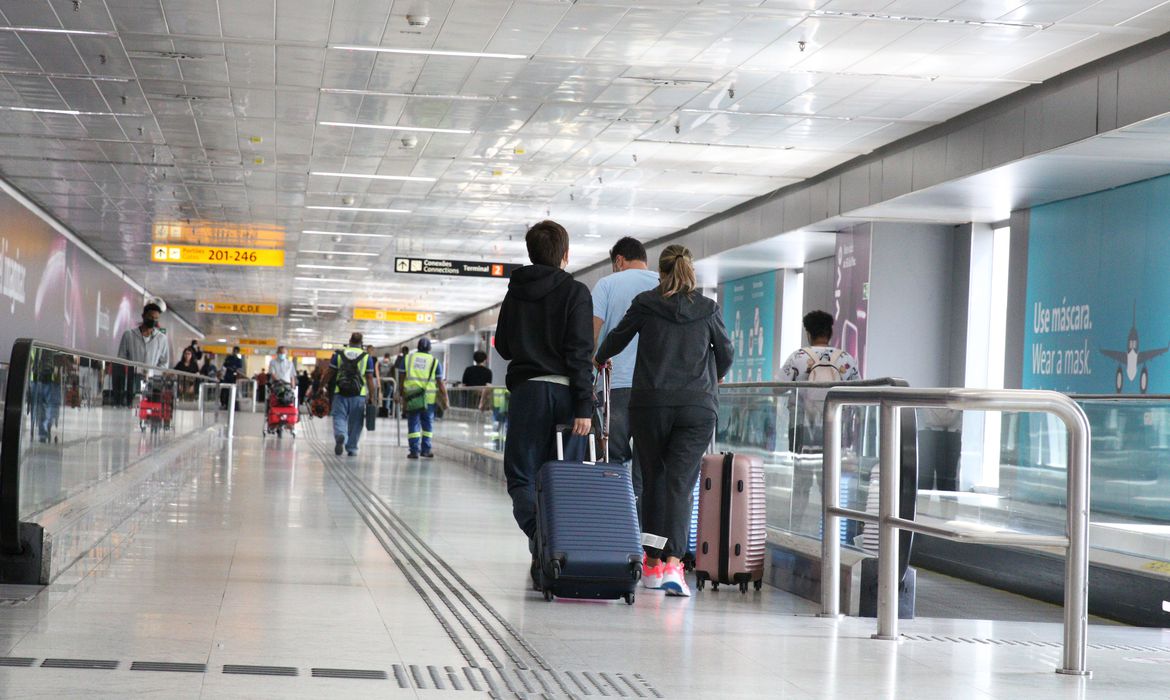The refund of values for foreign tourists through tax exemption, called Tax-Free, would cause an increase in their spending in Brazil and result in an annual financial turnover for the country of US$420 million, equivalent to R$2.1 billion.
The conclusion is from the survey ‘International Tourism: Satisfaction and Consumption in the State of RJ and Tax-Free’, carried out in March by the Fecomércio Institute of Research and Analysis of Rio de Janeiro (IFEC-RJ), with foreign tourists in the departure area of the Galeão Tom Jobim International Airport, in Rio’s northern zone.
The data show that while the average consumption per tourist without the program is US$542.9, with the implementation of the exemption, tourists would spend an average of US$665.5.

Among the interviewees, 48.7% have already heard about Tax-Free, and 27.3% think that tax exemption is important to make purchases.
The survey shows that 50.7% of the tourists interviewed have already benefited from similar programs when traveling to other countries that adopted Tax-Free.
After explaining how the refund works to those who did not know and those who already know, 53.7% said it stimulates consumption.
“73% think that Brazil should adopt the refund program, and 46.2% revealed that they would spend more or buy more with adopting the measure,” says a note from IFEC RJ.
RIO DE JANEIRO
For 74.5% of those interviewed, Rio de Janeiro is a good place for vacationing and shopping, besides not being expensive.
While traveling through the state, 60.5% of the international tourists did some shopping.
Clothing was the most purchased product and reached 64.1% of the preference of these visitors.
The expenses for food and drinks to be taken back to their countries of origin reached 37.2%.

Brazil does not adopt the refund system, which is generally given back to the tourist upon departure from the country, but projects are being considered in Congress with this proposal.
The study shows that 83.4% of those interviewed chose Rio for tourism, leisure, and sightseeing.
For another 11.3%, the reason for their trip is business.
The average length of visitors’ stay is ten days but 48.9% stay between eight and 30 days on average in the state.
LODGING
Most foreign tourists in Rio prefer to stay in hotels (64.4%) and inns (20.7%).
Next in preference are properties or rooms rented via digital platforms (17.7%), with Airbnb predominating.
The spending of 49.9% of the tourists surveyed was between US$201 and US$1,000, with the average being US$542.9.
“Being a shopping-friendly destination, if compared to their home countries, tourists would spend an average of US$786.6 on the same products purchased in Rio,” the study indicated.
The importance of having a souvenir of the trip (55.9%) was the main factor in the purchase decision of these tourists.
Next came the lower value than in their country (31.5%) and the quality of the product purchased (26.1%).
For Otavio Leite, a consultant of the Presidency of Fecomércio RJ and a doctoral student in Tourism, the survey is a good thermometer of how the tourism sector and commerce should behave:
“The survey shows the perception of foreign tourist satisfaction and the growth potential that the city and the state have for consumption.”
“Rio is leisure, but it is also friendly for shopping because it is a cheap destination, with responsible prices.”
RESEARCH
In all, 866 foreign tourists were heard, between March 7 and 14, considering the proportionality of the tourists’ destination of origin contained in the Tourism Statistical Yearbook 2020, base-year 2019, of the Ministry of Tourism, relative to the disembarkation in Rio de Janeiro.
Fecomércio informed that the purpose of the survey was to measure the benefits that a refund program, such as Tax-Free, can provide to the trade sector of goods, services, and tourism in the state of Rio de Janeiro, as well as to ascertain satisfaction indicators and understand the shopping behavior and profile of tourists who were in Rio de Janeiro.
With information from Agência Brasil

